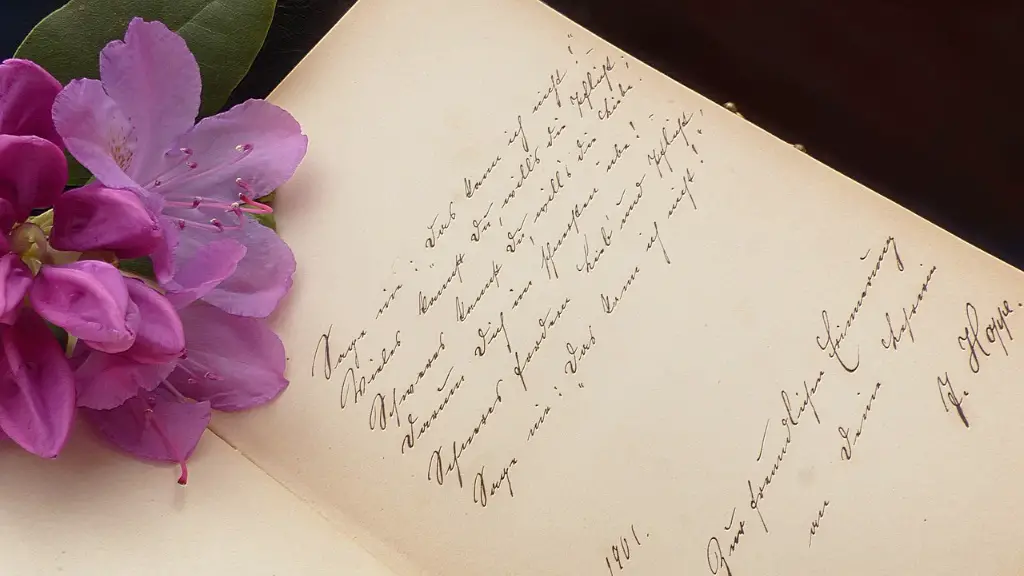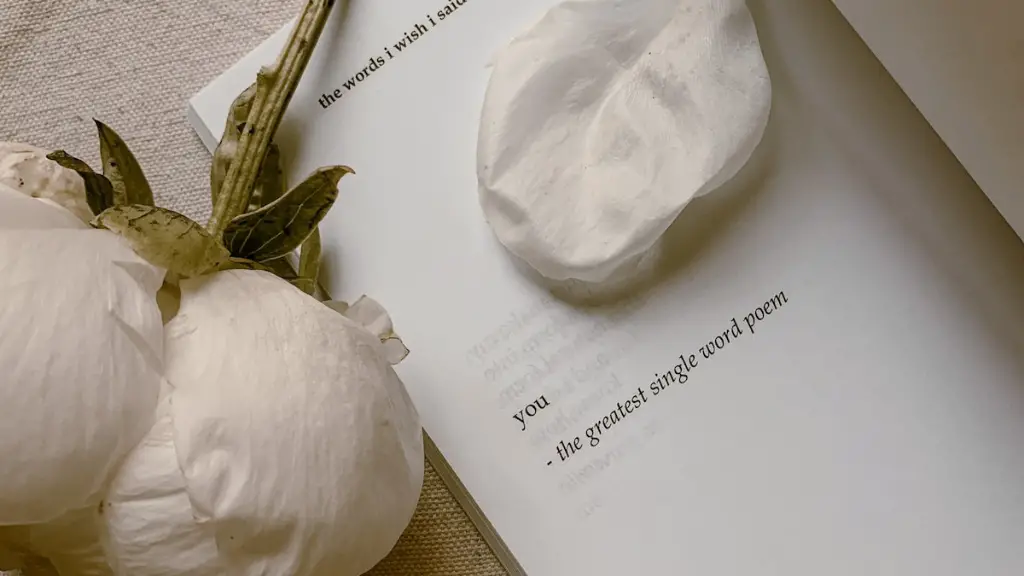Poetry is an art form that has been around since antiquity, and it has been used to express human emotion, thought, and passion. While traditional poetry is composed in an iambic pentameter, modern poetry often combines multiple languages and dialects in its composition. Dialect in poetry is the incorporation of speech peculiarities associated with a specific region or culture, primarily through the poem’s diction and syntax. This is done to give the poem an added layer of meaning, as well as a touch of local flavor.
Dialect can be used to give voice to characters or regions within a poem. By incorporating the idiosyncrasies of a certain dialect, the reader gains a greater understanding of the character or locale and can further connect with them. It also adds texture to the overall composition of the poem.
Within a poem, dialect can take many forms. For example, words can be spelled differently to reflect the local dialect or certain phrases can be used within a poem to reflect a specific culture’s vernacular. By constructing a poem within the confines of a specific dialect, the poet engages the complex dynamics between syntax and structure, creating a unique way to express a specific emotion or experience.
In addition to adding texture to the poem, dialect can also provide insight into a particular culture or region. This is beneficial in that it allows people who may not identify with a specific culture to gain a better understanding of it. When dialect is used to give voice to a specific region, the poem helps to bridge the gap between those cultures and the rest of the world while educating readers about the unique customs and practices of that region.
Dialect can also be used to explore a range of issues or topics. For example, a poem written with a dialect specific to a certain region may explore the social and political issues facing that area, or it may be used to tell a story about the history and culture of the region. By exploring these issues, a voice is given to people who would not otherwise be heard, further allowing readers to gain a more profound understanding of the region.
While dialect can be used to explore various topics and ideas, it is also important to be mindful of the implications of using dialect in a poem. It is essential to be aware of cultural sensitivity and respect the language and culture of the region that is being represented in the poem. This is especially true when exploring the topic of social and political issues, as these topics can be sensitive and should be discussed with respect and with consideration of the people and places the poem is representing.
Cultural Eclipse
When dialect is used within a poem, it can be seen as a form of linguistic and cultural reclamation. By giving voice to a certain culture or region, the poet is re-establishing the presence of that culture within their work. This can be seen as a form of cultural eclipse, as it allows a culture previously oppressed to re-emerge and reclaim their voice within the written form. By allowing readers to gain knowledge and new perspectives on previously unknown cultures, dialect gives the poet the opportunity to empower and educate those around them, ensuring that the work of poets is always relevant and meaningful.
Dialect and Origin
Dialect can also be used to explore a person’s sense of belonging and identity. By connecting with a certain language or dialect, a person can feel more connected to their ancestry and explore the legacy of the cultures that have influenced them. By connecting the past with the present, poets can convey the importance of their culture and their heritage, giving readers a greater understanding and appreciation of their roots.
In addition to exploring identity, dialect can be used to explore the themes of displacement and exile. By giving voice to those whose environments may have been forced to change, poets are able to create a sense of understanding between cultures. By exploring the nuances of displacement, both the poet and the reader gain a better understanding of the struggles of those affected and the resilience of those who remain.
Purpose of Dialect
The purpose of using dialect in poetry is multi-faceted. First, it allows poets to give voice to cultures and regions that might otherwise remain silent. This serves to educate readers and create a sense of understanding between cultures. Additionally, it allows poets to explore themes of identity, belonging, and displacement, adding new insights and perspectives to the poem. Finally, dialect serves to give the poem an added layer of meaning, allowing readers to better connect with the work.
Incorporating dialect into a poem can be a powerful tool for writers. It allows poets to broaden their horizons and engage their readers on a deeper level, giving them a more meaningful experience. With the incorporation of dialect, writers can create powerful, thoughtful, and meaningful works of art.
Implications of Dialect
Dialect also has implications for the language itself. As dialect is incorporated into the poem, it can serve to create a linguistic bridge between languages and cultures. By facilitating communication between communities, dialect helps to create a more unified and cohesive conversation. This allows for a greater exchange of ideas, and thus, a greater understanding between cultures.
At the same time, dialect can also serve to create boundaries within the language itself. By incorporating the and nuances of specific dialects, the poem might be limited to a certain audience due to a lack of understanding. This can limit readers’ access to the poem, making it difficult to engage with. Therefore, it is important to be mindful of how dialect is used within the poem.
Conclusion of Dialect
In summary, dialect plays an important role in poetry. It allows poets to explore a range of topics including identity, belonging, culture, and displacement. It also educates readers and serves to bring together cultures and languages. But, it is important to be mindful of how dialect is used in a poem as it can create boundaries or limitations when it comes to readers’ access to the work. Through thoughtful and careful consideration, dialect can be used to create powerful and meaningful works of poetry.



